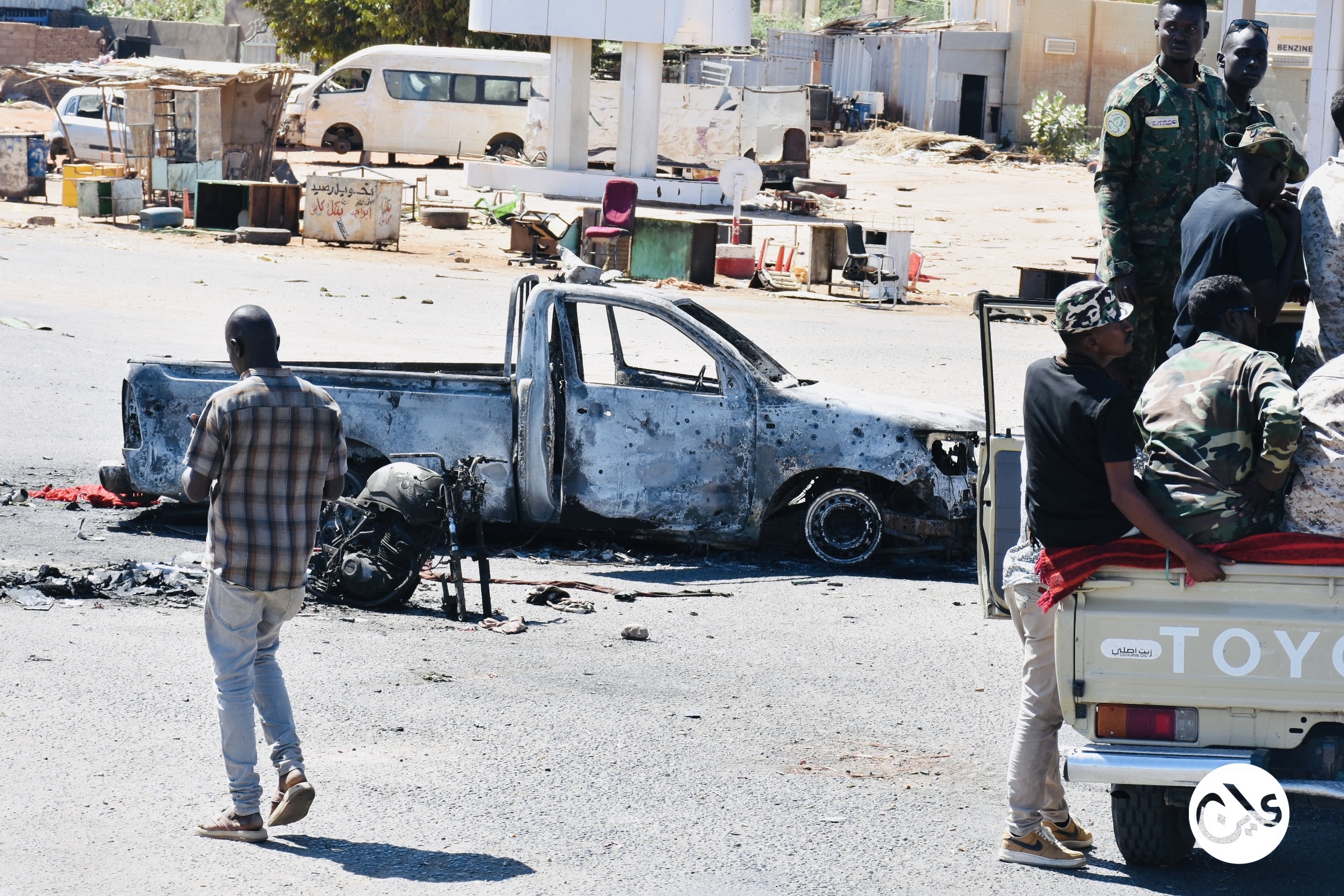Returning home to central Sudan, hope and hardships
21 May 2025
After the army achieved a series of military victories in central Sudan, many Sudanese have begun a journey home. The army reclaimed several strategic locations: Sennar in December last year, the capital of Al-Jazeera State, Wad Medani, in January, and the country’s capital, Khartoum, last March.
Often struggling to survive in displacement shelters, nearly 400,000 internally displaced people returned home from December to March, according to the International Organisation for Migration (IOM). While hopeful for increasing stability, many of those returnees have come home to a new reality: everything they remember from home is gone.
Aid workers and emergency response room volunteers face significant risks as they try to provide relief in these challenging conditions. On a daily basis, the volunteers face widespread destruction and ever-increasing humanitarian needs—not to mention targeting by army soldiers and allied militias.
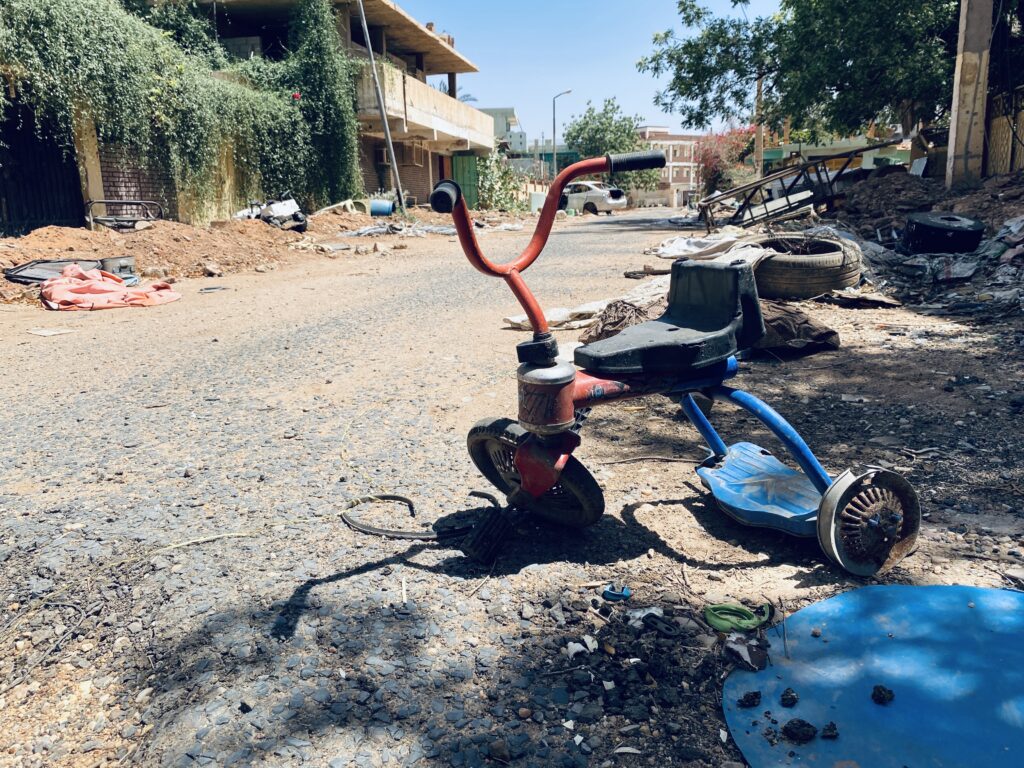
Bahri, North Khartoum
Mohamed Bashir established a central kitchen in Bahri, north Khartoum, during the first year of the war before leaving for Egypt. While under the control of the Rapid Support Forces (RSF), Mohamed found himself dodging street battles and repeated arrests, including torture, all the while trying to feed others. “I sought refuge in Egypt in April 2024 for medical treatment and to undergo surgery for a broken leg, an injury I sustained from a gunshot wound.”
It was a perilous journey to Egypt. “We found ourselves lost in the desert for five days until the refugees in their vehicle rescued us.” While in Egypt, he maintained contact with friends in his neighbourhood—one of whom was killed for documenting events. “Now I have returned to Bahri and found my friend buried in front of the door of the house where we spent many years together,” he added.
“Despite being away for only a year, I was shocked by the extent of the destruction in the city upon my return. The school has been transformed into a mass grave,” Bashir lamented. He noted the physical deterioration of people due to hunger and disease, adding that there is currently no support or food available, and residents of South Bahri rely on aid and donations from people within the diaspora.
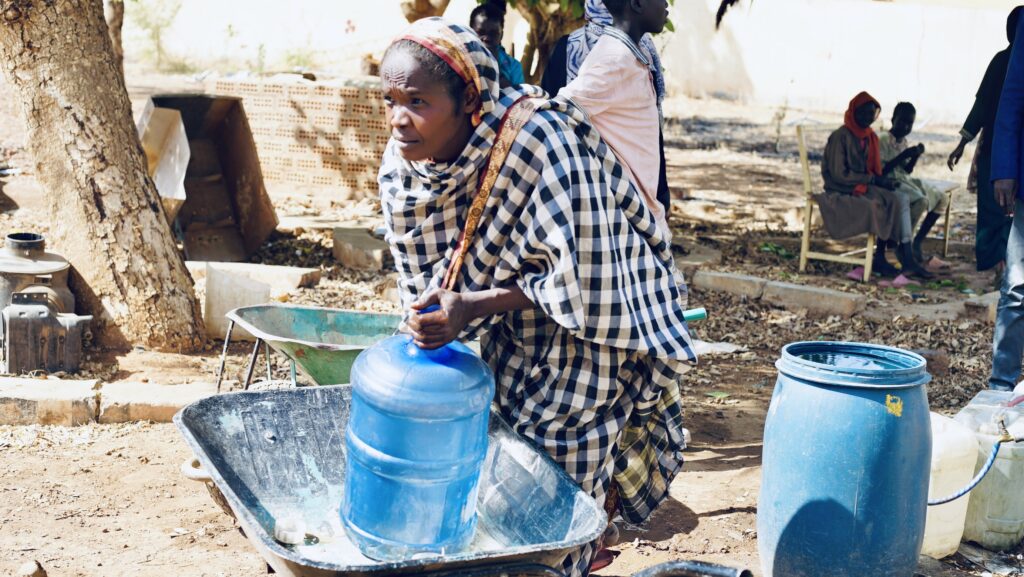
The destruction of markets in Bahri has forced residents to trek to the East Nile locality to access a shopping area. Water and electricity remain in short supply in Khartoum. In neighbouring Omdurman, the capital’s sister city, airstrikes take place on a daily basis. “I cannot interfere with the decisions of others, but I would not advise anyone to return unless they are compelled to,” he added.
Bashir indicated that they are currently organising a fundraising campaign to purchase solar panels and facilitate the return of families who cannot afford to stay in Egypt due to high rents and a lack of opportunities.
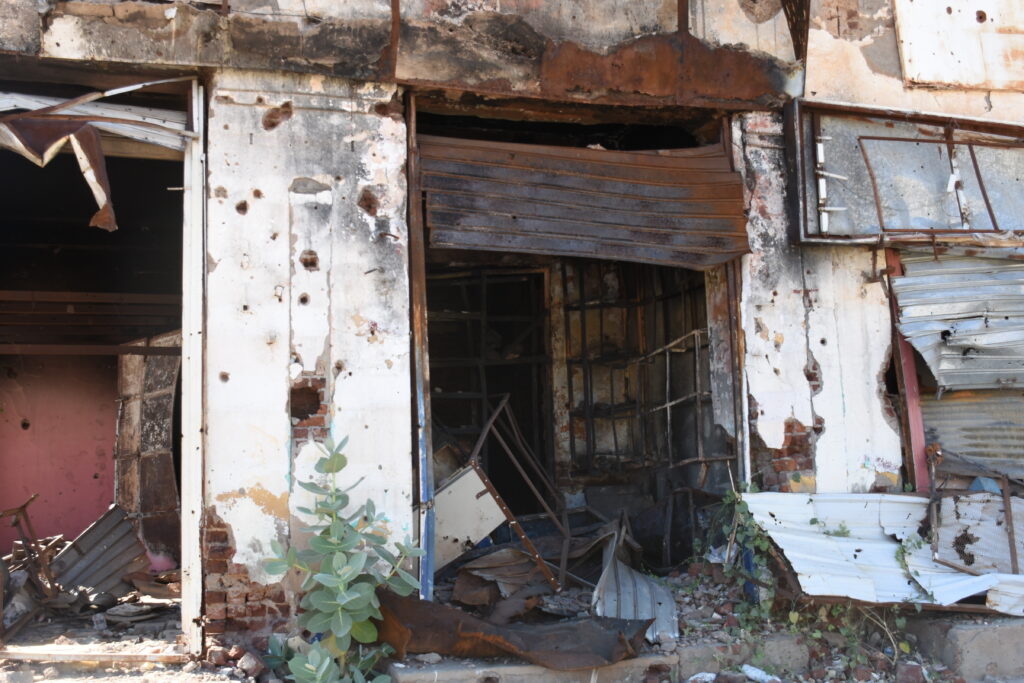
Wad Medani, Al-Jazeera State
For two years Hassan Aboud, a local volunteer, lived and supported the war-affected in Wad Medani, the capital of Al-Jazeera State. He has seen firsthand the horrors inflicted by both the RSF and the national army. “I was detained for two months by the RSF from May to July 2024, simply for possessing a notebook with the names of families in my area.”
Hassan used that notebook to help coordinate their evacuation from Jazeera State to Gedaref in eastern Sudan, working alongside emergency volunteers in Gedaref and Kassala states. Conditions in Wad Medani under army control have not fared much better, Hassan says, with soldiers arbitrarily arresting civilians, often falsely accusing them of collaborating with the enemy. The army detained Hassan for one week, during which he faced daily interrogations before finally being released.
Hassan’s experience under the army reflects a widespread one among Sudan’s civilian population. “Public confidence in the Sudanese Armed Forces (SAF) has eroded, with fear gripping communities nationwide. With safety increasingly uncertain, many young men are now arming themselves out of sheer desperation for self-protection,” he added.
This shift towards self-defence is increasingly becoming a new reality on the ground, Hassan added, with some volunteers arming themselves; others have left volunteering due to rampant insecurity. “The number of volunteers has plummeted as many have fled, while others have taken up arms in response to the crisis.”
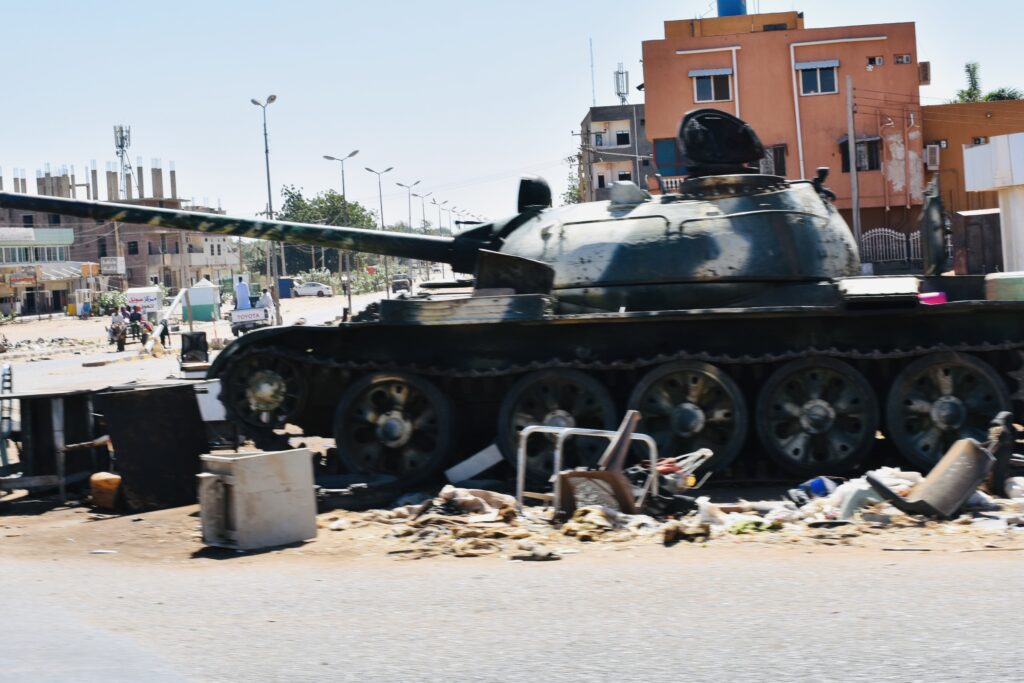
Blue Nile and Sennar
In Blue Nile State, unrest already plagued the southeastern state even before the outbreak of conflict. “It was not a place of stability before the current war,” says Ezoo Darag, a volunteer and photographer from Blue Nile State.
Despite its challenges, Blue Nile volunteers did their best by receiving displaced people from Khartoum, Jazeera, and Sennar into schools in the state’s capital, Damazin. However, the conflict’s southward expansion overwhelmed their already strained resources, Darag told Ayin.
“During the conflict, family evacuations and transportation presented serious obstacles, with many families struggling to find safe routes and reliable means to reach their homes amid ongoing violence and instability.”
He said that emergency response rooms and local initiatives have coordinated a significant number of buses for voluntary return trips to Sennar and Blue Nile states every Friday. Specifically, two buses travel a four-day journey from the Giza area of Egypt to Sennar and Blue Nile states.
Despite the huge challenges of travelling from Egypt back to Sudan, the UN migration agency says some 123,000 have made the trip this year, with 50,000 of them returning to Sudan in April alone. The distance is long, and Egyptian authorities frequently close the border, forcing Sudanese families to sleep in the open while they wait several days at a time.
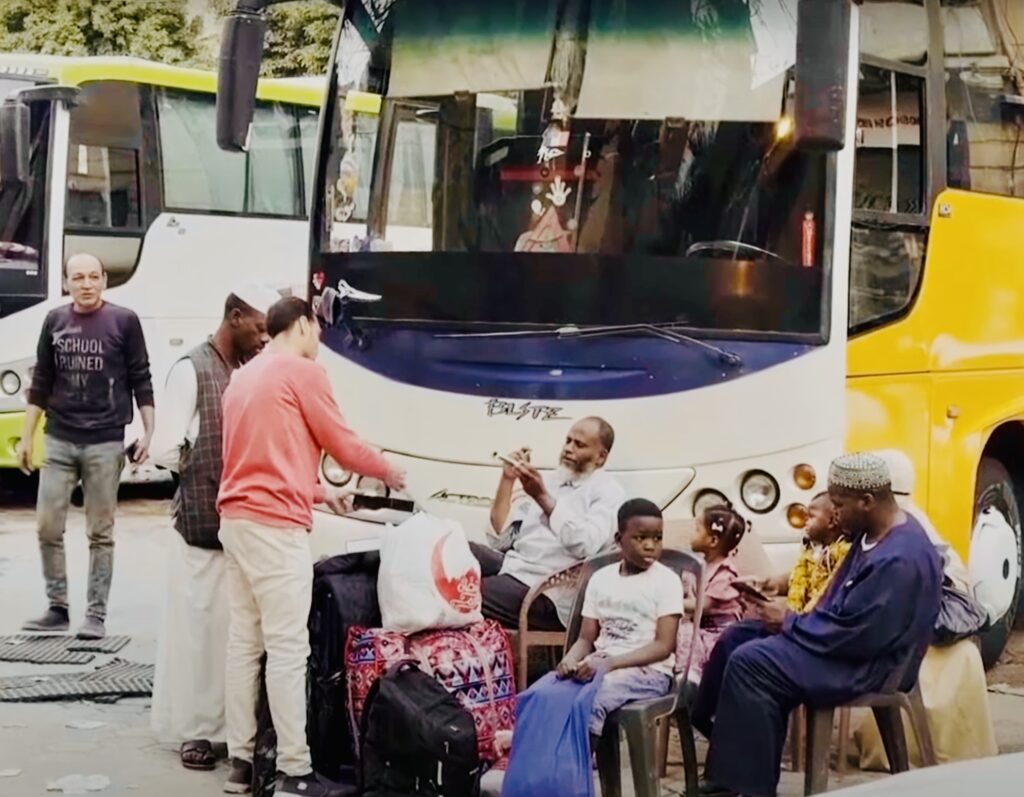
Hanna, originally from Sinja, the capital of Sennar State, had fled with her children to Egypt due to the war. Escaping the violence was bad enough – returning home has proven almost as challenging. “My children and I were stuck at the border crossing between Egypt and Sudan for four days. We slept on the ground and couldn’t take anything we bought in Egypt.”
Hanna’s three children cried constantly during this ordeal until the bus was finally allowed to move. Their first meal was in the River Nile area of Sudan. “We left Sudan displaced and fearful, and now we return only to repeat the suffering.” Upon her return to Sinja, Hanna and her children found themselves homeless again. “My house was completely destroyed—currently, my children and I are living in our neighbour’s house, relying on local communal kitchens for food. We have no source of income for food or even medical treatment.”


